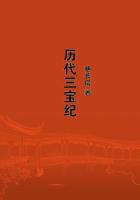One of the great difficulties in thought is that often the same word expresses quite different concepts. Some superficial resemblance has taken possession of the mind and expressed itself in a unifying word, disregarding the fundamental differences.
Take the word "play." The play of childhood is indeed a pleasurable activity to the child, but it is really his form of grappling with life, a serious pursuit of knowledge and a form of preparation for his ***** activities. It is not a way of relaxation; on the contrary, in play he organizes his activities, shuffles and reshuffles his ideas and experiences, looking for the new combinations we call "imaginations." The kitten in its play prepares to catch its prey later on; and the child digging in a ditch and ****** believe "this is a house" and "this is a river" is a symbol of Man the mighty changing the face of Nature.
The running and catching games like "Tag" and "I spy," "Hide and go seek," "Rellevo" are really war games, with training in endurance, agility, cool-headedness, cooperation and rivalry as their goals. Only as the child grows older, and there is placed on him the burden of school work, does play commence to change its serious nature and partake of the frivolous character of ***** life.
For the play of ***** life is an effort to find pleasure and relaxation in the dropping of serious purposes, in the "forgetting" of cares and worries, by indulging in excitement which has no fundamental purpose. The pleasure of play for the ***** is in the release of trends from inhibition, exactly as we may imagine that a harnessed horse, pulling at a load and with his head held back by a check-rein, might feel if he were turned loose in a meadow. This is the kind of play spirit manifested in going out fishing, dressed in old clothes, with men who will not care whatever is said or done. There is purpose, there is competition and cooperation and fellowship, but the organization is a loose one and does not bear heavily. So, too, with the pleasure of a game of ball for the ******* who plays now and then. There is organization, control and competition; but unless one is a poor loser, there is a relaxed tension in that the purpose is not vital, and one can shout, jump up and down and express himself in uninhibited excitement. Whether this excitement has a value in discharging other excitement and feelings that are inhibited in the daily work is another matter; if it has such a value, play becomes of necessary importance. In outdoor games in general, the feeling of physical fitness, of discharging energy along primordial lines and the happy feeling that comes merely from color of sky and grass and the outdoor world, bring a relief from sadness that comes with the work and life of the city man.
Often the play is an effort to seek excitement and thus to forget cares, or it is a seeking of excitement for its own sake. Thus men gamble, not only for the gain but because such excitement as is aroused offers relief from business worries or home difficulties. The prize fights, the highly competitive professional sports of all kinds are frequented and followed by enormous numbers of men, not only because men greatly admire physical prowess, but because the intense excitement is sought. I know more than one business and professional man who goes to the "fights" because only there can he get a thrill. There is a generalized mild anhedonia in the community, which has its origin in the fatigue of overintense purposes, failure to realize ideals and the difficulties of choice. People who suffer in this way often seek the sedentary satisfaction of watching competitive professional games.
Indeed, the hold of competition on man exists not alone in his rivalry feeling toward others; it is evidenced also in the excitement he immediately feels in the presence of competitive struggle, even though he himself has little or no personal stake.
Man is a partisan creature and loves to take sides. This is remarkably demonstrated by children, and is almost as well shown in the play of adults. A recent international prize fight awakened more intense interest than almost any international event of whatever real importance. That same day it passed practically unnoticed that America ended a state of war with Germany.
A law of excitement, that it lies in part in a personal hazard accounts for the growth of betting at games. The effort to gain adds to the interest, i. e., excitement. That it adds tension as well and may result in fatigue and further boredom is not reckoned with by the bettor or gambler. To follow the middle of the road in anything is difficult, and nowhere is it more beset with danger than in the seeking of excitement.
Games of skill of all kinds, whether out of doors or within; baseball, cricket, billiards, and pool afford, then, the pleasure of exertion and competition in an exciting way and yet one removed from too great a stake. Defeat is not bitter, though victory is sweet; a good game is desired, and an easy opponent is not welcomed. The spirit of this kind of play has been of great value to society, for it has brought the feeling of fair play and sportsmanship to the world. Primitive in its origin, to take defeat nobly and victory with becoming modesty is the civilizing influence of sportsmanship. In the past women have lacked good-fellowship and sportsmanship largely because they played no competitive-cooperative games.
I shall not attempt to take up in any detail all the forms of pleasure-excitement seeking. Dancing, music, the theater and the movies offer outlets both for the artistic impulses and the seeking of excitement. In the theater and the movies one seeks also the interest we take in the lives of others, the awakening of emotions and the happy ending. Only a few people will ever care for the artistic wholesale calamity of a play like "Hamlet," and even they only once in a while.














